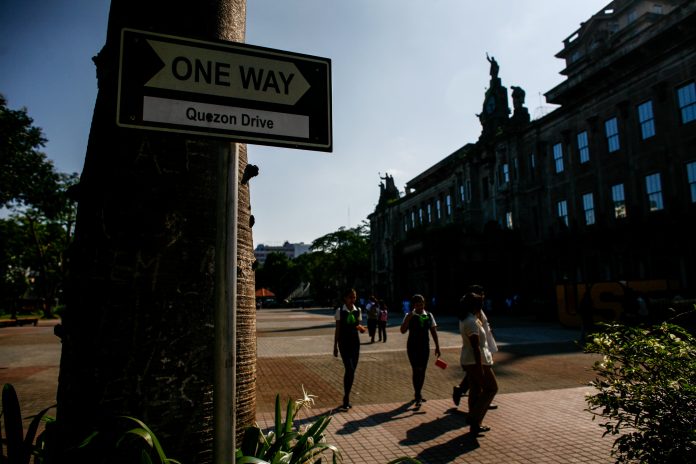Private schools should be helped by government at this time when many of them face the dire prospect of shutting down due to the COVID-19 pandemic.
Bishop Roberto Mallari of San Jose de Nueva Ecija, chairman of the Commission on Catechesis and Catholic Education of the Catholic Bishops Conference of the Philippines (CBCP), believes that government support to private schools is crucial.
“It’s important that even private schools also get help from the government for their survival. I pray that the present government recognizes the role of private schools in nation- building,” Mallari said.
“They are not just there to earn money. But most of them, if not all, exist because of a great sense of mission to contribute to the formation of young minds,” he pointed out.
The grim reality is that hundreds of private schools—400 is the figure we’ve been hearing on TV news nowadays—face closure because of lack of enrollees, according to a study by the Coordinating Council of Private Educational Association of the Philippines (COCOPEA).
The study also showed that around 370,000 private school teachers have gone on “no-work, no-pay” status, or taken pay cuts since the start of the COVID-19 pandemic.
Joseph Noel Estrada, COCOPEA managing director, bared recently that 80 percent of private schools were unable to continue paying their teachers amid the pandemic.
Private school enrollment has also been dismal. Preliminary figures by the Education department last month indicated that only around 319,000 students have so far enrolled in private schools for the coming school year. This is a sharp decline from the 4 million recorded last year.
The most recent DepEd figures recorded 558,705 students enrolled so far, compared to 13.8 million in public schools with just one week left to go in the online enrollment period.
The drop in enrollment, Bishop Mallari observed, is due to the fact that parents want to protect their children from COVID-19 “so they want to keep them at home.”
The prelate reminded parents that it would not be good for the mental health of their children to stay at home without doing anything. “They should be kept busy. They have to find a way of doing their usual activities in the new normal.”
The earliest opening of schools is eyed in August. Private colleges and universities had earlier been allowed by the Commission of Higher Education (CHED) to submit proposed tuition hikes for approval, but they have to consult students, parents, and the faculty to explain the basis for the tuition increases.
On the other hand, DepEd has asked private schools to avoid increasing tuition and other miscellaneous fees this school year as families cope with a slew of expenses amid the coronavirus pandemic’s impact on their livelihoods.
“We recognize the need to ensure the sustainability of private educational institutions so that they may continue to be viable partners in the delivery of quality basic education. However, this objective must be balanced with the accessibility of these services,” the agency said.
DepEd also called on private schools to be transparent about charges amid reports that certain schools sought payments inconsistent with distance learning. Fees this school year should reflect the “major change in learning delivery modality,” the department said.
Though DepEd is primarily in charge of running the country’s vast public school system, private schools must follow guidelines under DepEd Order No. 88, issued in 2010, should they seek to implement changes in their tuition fees and other charges.
While DepEd said it “encourages private schools to defer increases on tuition and other school fees,” the agency stopped short of issuing a moratorium on applications for such increases.
This is a tacit recognition that private schools face a difficult financial situation amid the pandemic, and therefore must be allowed to raise tuition and other fees in order to survive.
At the same time, private schools should only implement reasonable increases that would allow them to pay the salaries and benefits of the faculty and support staff and thus keep going amid difficult times.
The 1987 Constitution “recognizes the complementary roles of public and private institutions in the educational system.” It also provides that the State shall exempt all the revenues and assets of non-stock, non-profit educational institutions from duties and taxes. All grants, endowments, donations or contributions used actually, directly, and exclusively for educational purposes are also exempt from tax.
But these constitutional guarantees may not be enough to allow private schools to keep head above water amid the coronavirus pandemic.
Government must now move decisively to help them sustain their operations as these private schools perform a vital role in preparing the youth to help in nation-building.
Ernesto M. Hilario writes on political and social justice issues for various publications in the Philippines. The views and opinions expressed in this article are those of the author and do not necessarily reflect the official editorial position of LiCAS.news.









